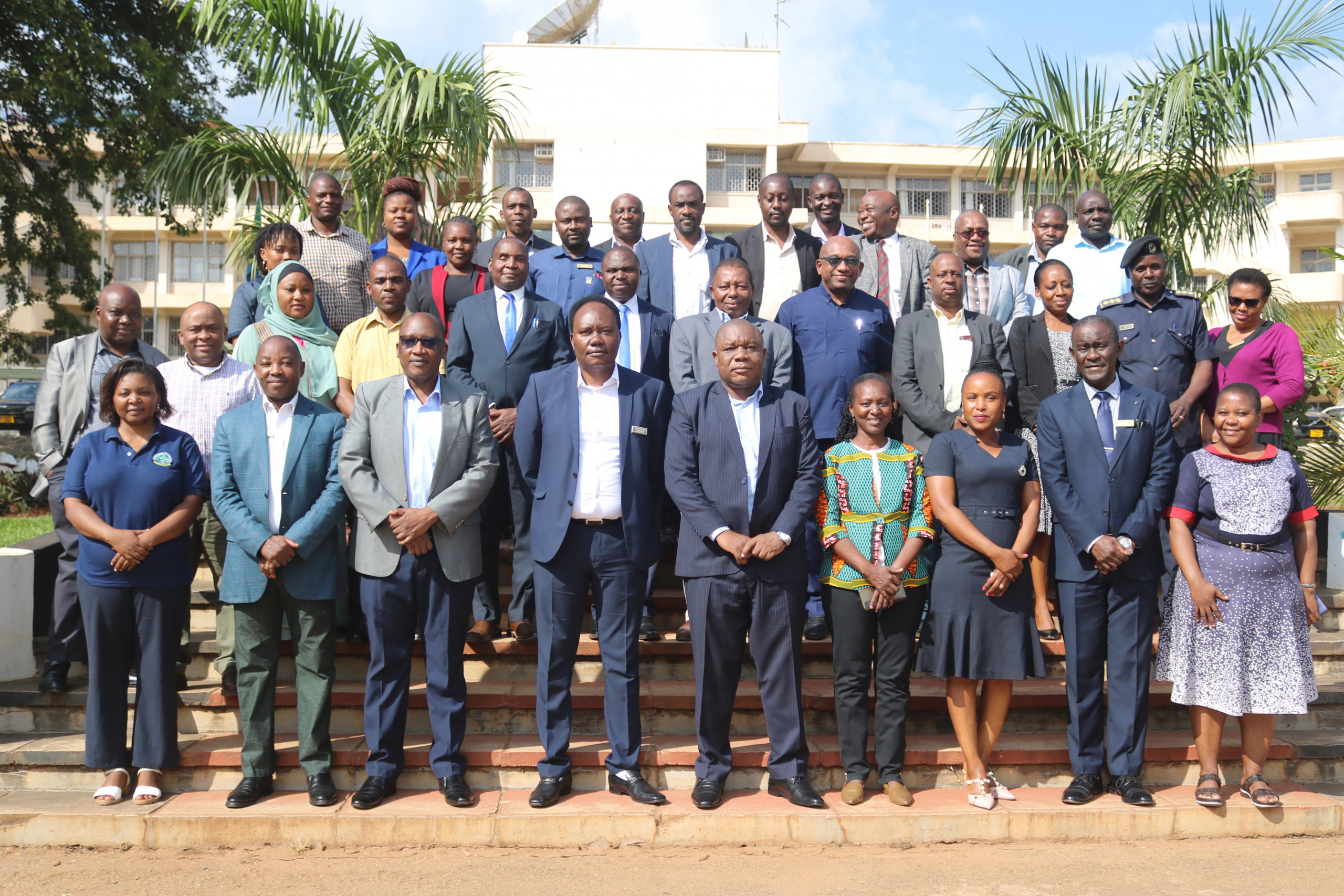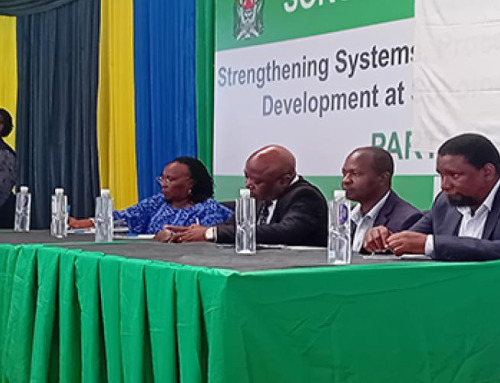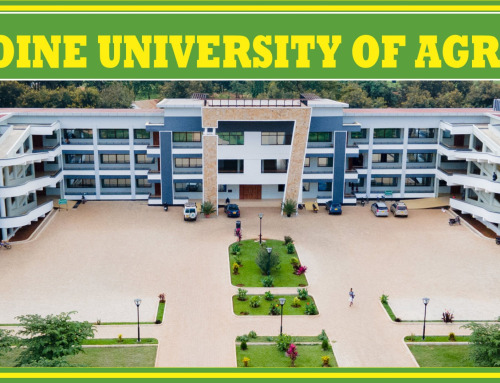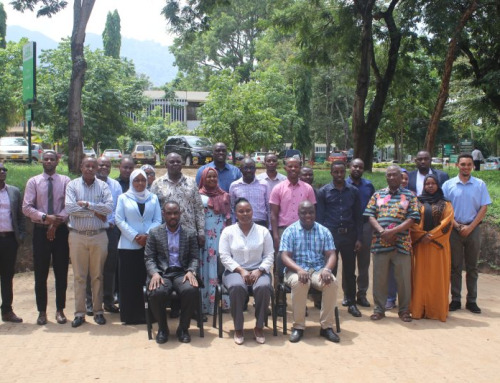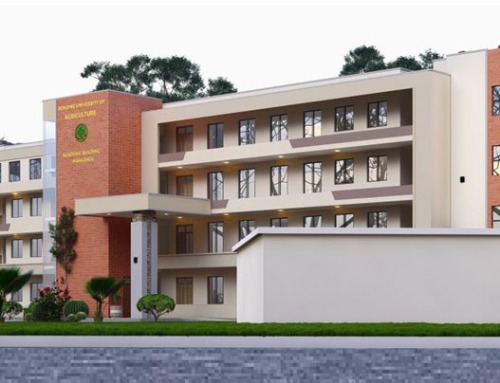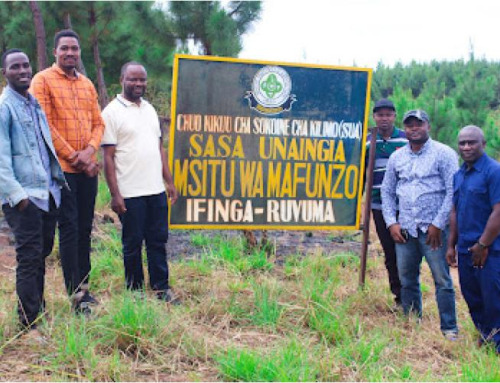In the week of June 26 – 30, 2023, Sokoine University of Agriculture organized a crucial awareness seminar for its university leaders, focusing on HIV/AIDS, Non-Communicable Diseases (NCDs), and workplace harassment. The seminar aimed to equip leaders with essential knowledge and skills to tackle these health challenges effectively.
Sponsored by the Higher Education for Economic Transformation (HEET) Project, this significant event brought together College Principals, School Deans, Directors of Institutes, Directorates, Centres, and Heads of departments and sections. The seminar took place in the Council Chamber Hall at Edward Moringe Campus.
The guest of honor who officiated the event was Deputy Vice-Chancellor for Academic, Research, and Consultancy, Prof. Maulid Mwatawala, who emphasized the university’s commitment to addressing health issues through awareness and proactive initiatives.
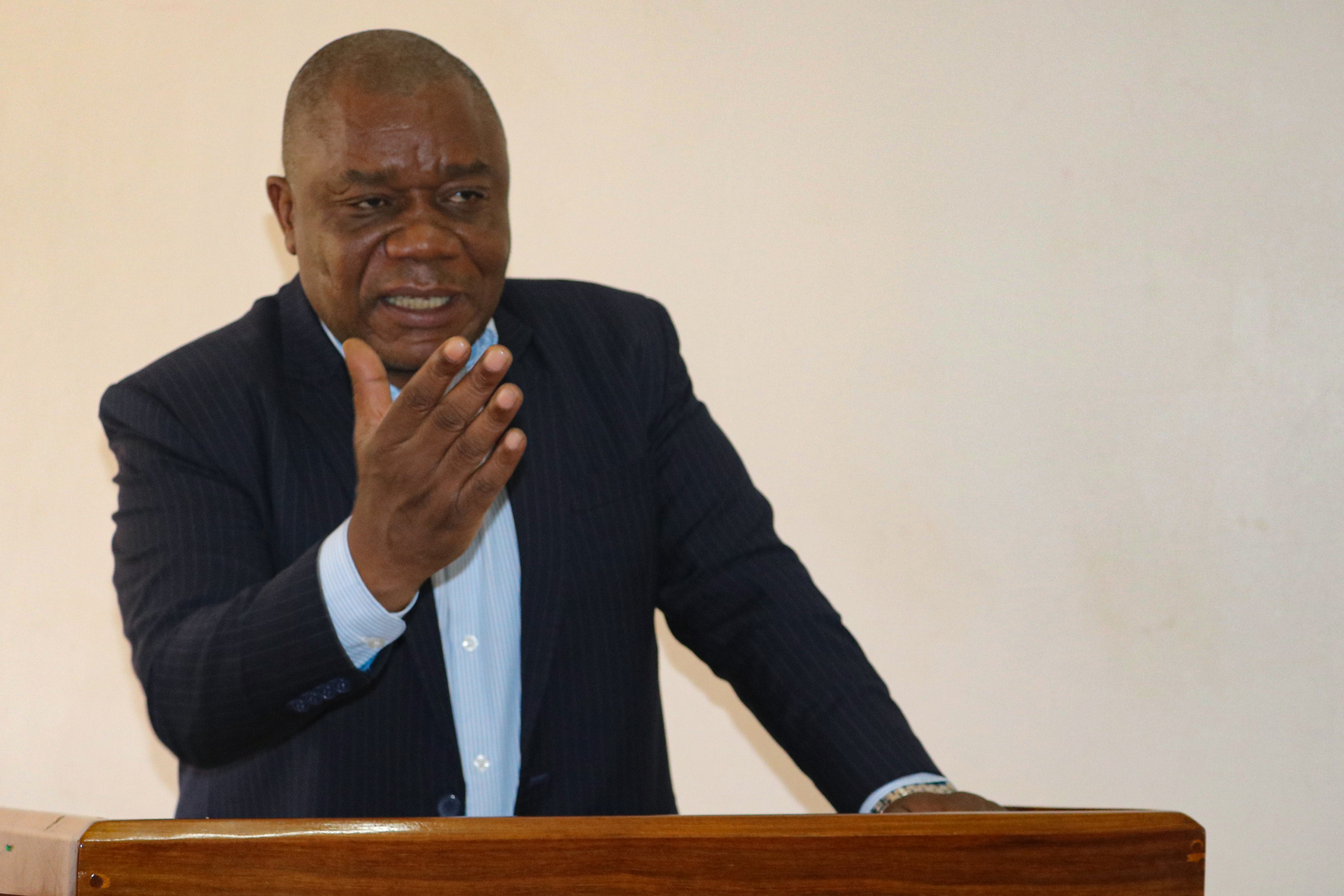
Deputy Vice-Chancellor for Academic, Research, and Consultancy, Prof. Maulid Mwatawala addressing the audience of the seminar.
HIV/AIDS has remained a pressing concern both at SUA and on a global scale.
Prof. Mwatawala presented alarming statistics, revealing the magnitude of the issue. Since the epidemic’s emergence, over 74.6 million people have been affected by HIV, and approximately 32 million lives have been lost due to AIDS-related illnesses. Of particular concern was the rate of infection among young people aged 15 to 24, with a substantial number of university students being at risk. It underscores the urgent need for awareness and preventive measures.
On Non-Communicable Diseases (NCDs)
Prof. Mwatawala emphasized that NCDs, which were once considered diseases of the wealthy in developed countries, have now become pervasive across all demographics. The WHO’s report in 2008 revealed that NCDs accounted for 36 million deaths worldwide, making up 63% of all deaths. Among these, 48% were attributed to heart diseases, diabetes, cancer, and chronic respiratory illnesses. This highlights the importance of early detection, management, and lifestyle modifications to mitigate the impact of NCDs on public health.
On workplace harassment
Additionally, the seminar addressed the crucial issue of workplace harassment. Recognizing the significance of mental health, Prof. Mwatawala shared compelling statistics from Tanzania’s Ministry of Health, which indicated that one in every four individuals faces mental health challenges.
He urged the SUA community to embrace a proactive approach to understanding mental health disorders, seeking proper treatment, and accessing psychological counseling services to support overall well-being.
The seminar proved to be a valuable platform for knowledge exchange and capacity building, enabling leaders to play a more active role in creating a healthier and more resilient university community.
By combining the resources and efforts of the Sokoine University of Agriculture and the HEET Project, SUA continues to take significant strides in tackling health challenges and fostering economic transformation through education and improved health outcomes.

